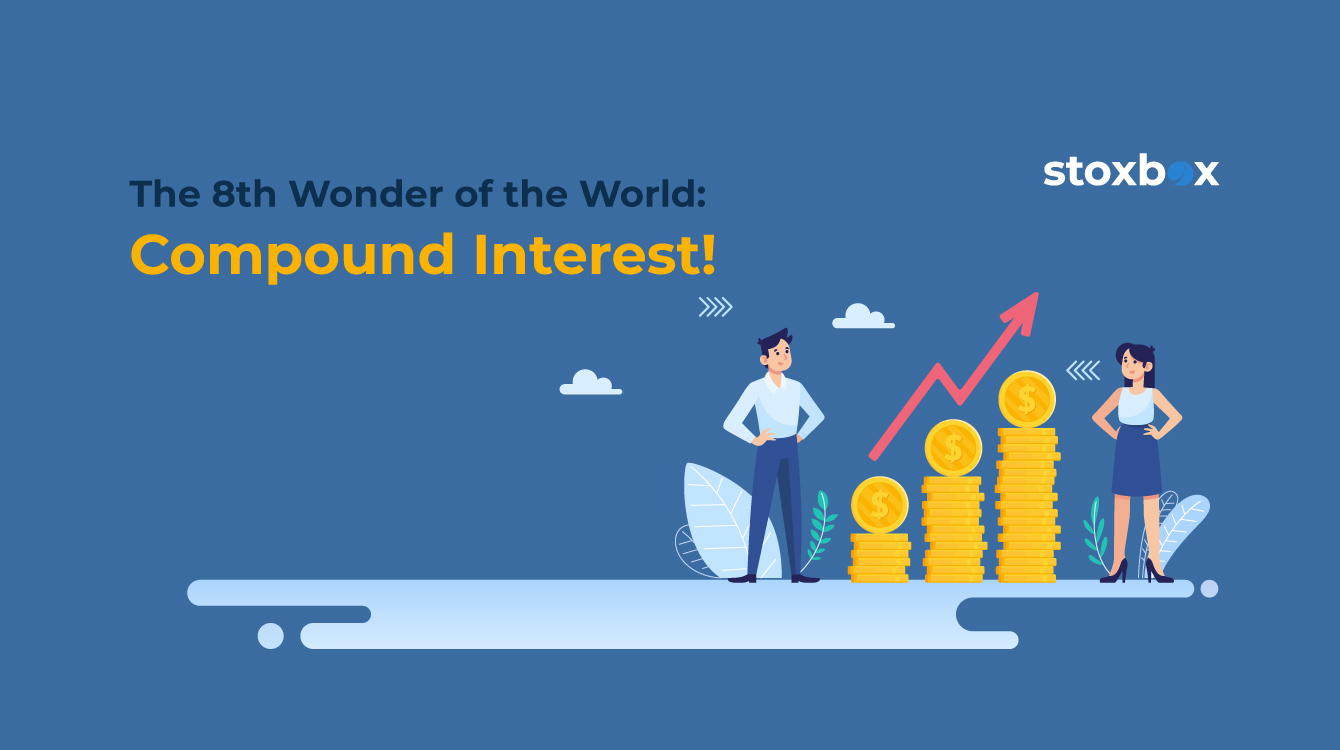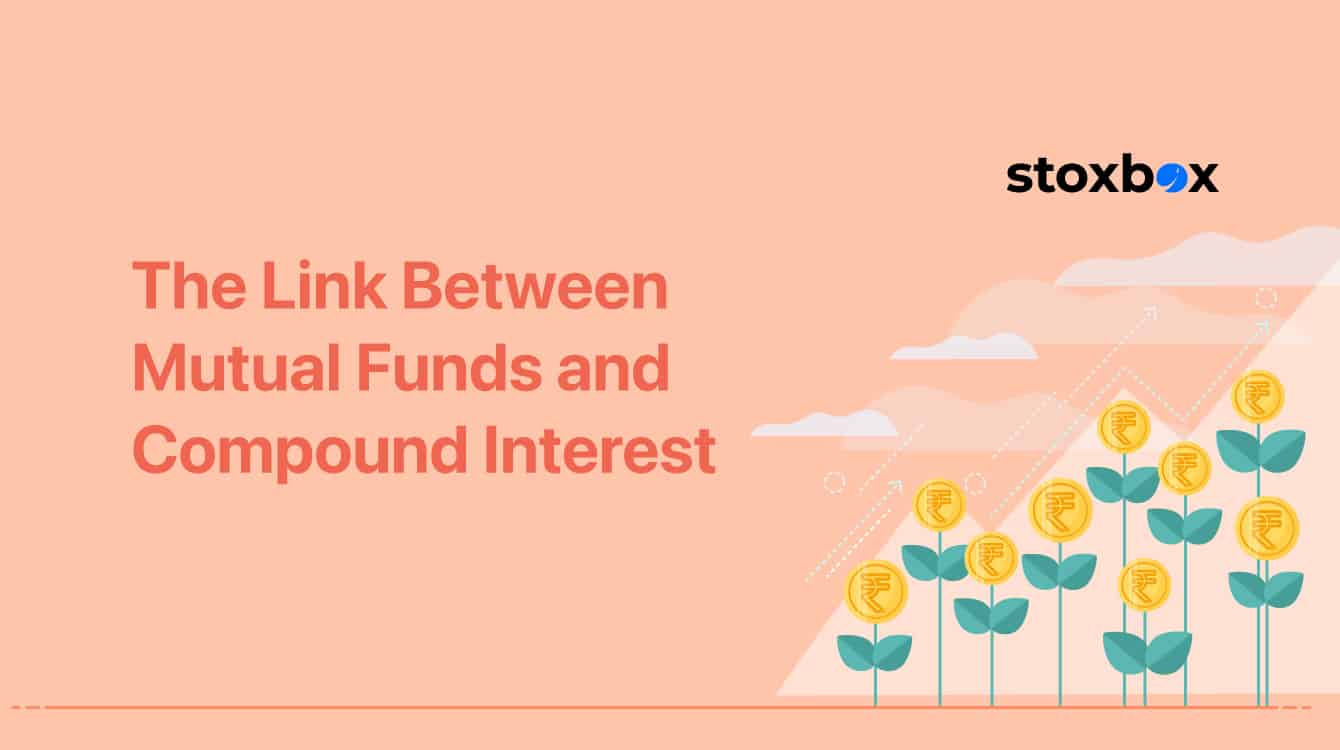Introduction
Ever wondered if there exists a scheme in the universe out there to make money work for you when all you do is sit and calculate and invest more money? And it indeed exists, and it is known as compound interest! Experts in various journals have illustrated the power of compounding and it can be seen in practice when you spot the ‘boy next door’ transforming into the ‘millionaire next door’! Aptly called the 8th wonder of the world by Albert Einstein, compound interest can work wonders if applied correctly and diligently for your investments.
What is Compound Interest?
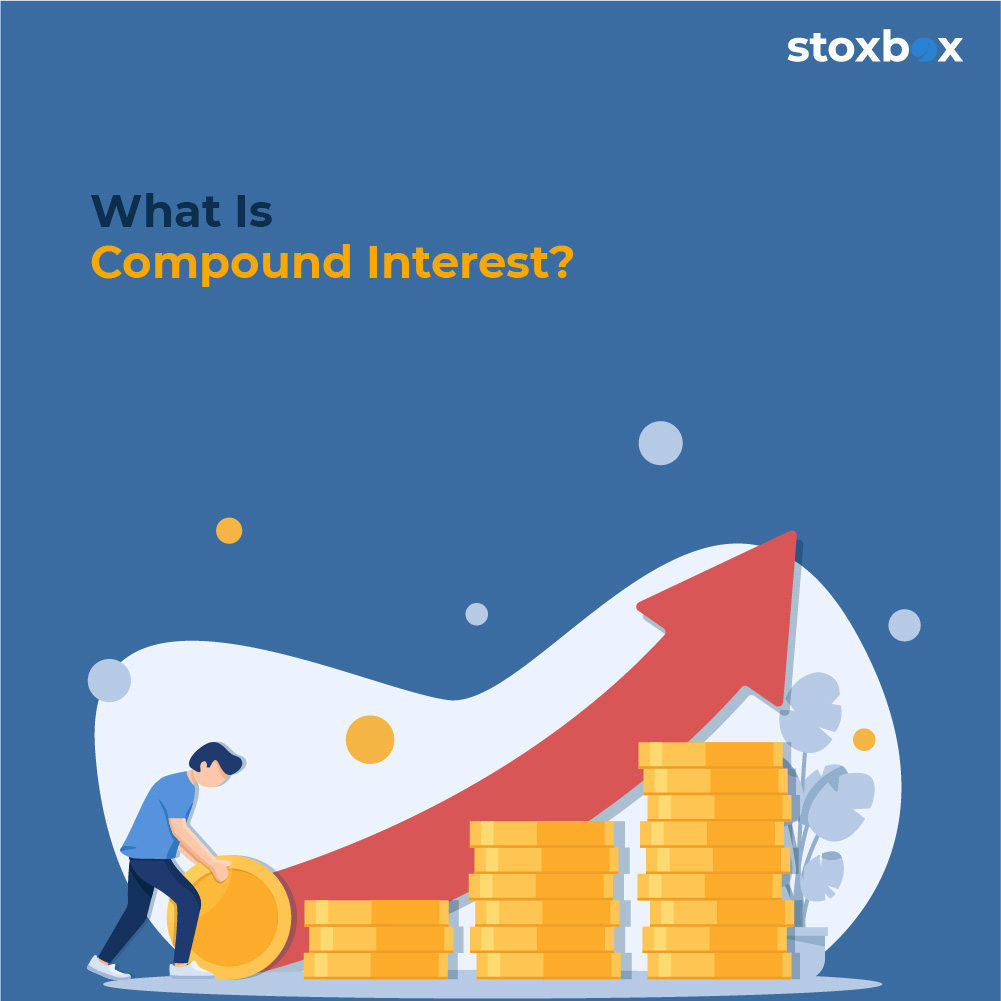
For understanding purposes, imagine a snow avalanche from a big snowball that started from a small snowflake, which turned bigger and bigger as more snow kept on getting added and ultimately turned into a huge snowball that had the power to smash everything in its way. Compound interest works on the same principle: building up your wealth day by day and finally becoming a snowball of wealth, which becomes an unstoppable force.
In simple words, compound interest is interest on interest. The amount of interest earned on the principal amount gets added each time, giving out an even higher principal amount every time it is reinvested.
The formula for compound interest is:
A = P(1+r/n)nt
Where, P = Principal, r = interest rate, n = number of times interest is compounded each year, nt = time (years)
Example:
While the above formula is excellent for mathematical scholars, for most of your compound interest calculations, online compound interest calculators are available for free to arrive at quick results.
Let’s understand compound interest concepts with the help of a simple example. Suppose you have a savings account with Rs.100 as the amount deposited there. With a 1% interest rate, you have earned an interest amount of Rs.1 at the end of the year. Now, the amount you will earn interest in the second year is Rs.101, which will amount to Rs.1.01. The total amount in your savings account at the end of year two will be Rs.102.01. This means that with the help of compounding interest, your interest is also earning money for you. Imagine the large corpus that you can end up earning with significant numbers invested for much longer periods.
Why Compound Interest Matters:
Compound interest is an important aspect to consider for all your investment goals. What’s even more important is to understand the part played by inflation here. Inflation is nothing but an increase in the prices of goods and services over some time. Sadly, most investment options are sold based on actual amounts of monetary returns and not the real return in terms of the value of money. For example, our brain is instantly interested upon hearing an investment scheme that will fetch Rs.10 lakhs at the end of 15 years by investing Rs.50,000 each year for 15 years. However, once we include inflation at 4%, the same ten lakhs are reduced to only Rs.5.55 lakhs after 15 years. Thus, the investor is not promised the real return, which leads to erosion of wealth in the long term; as such investments fail to beat inflation.
The effect of inflation in determining the actual returns from an investment cannot be overlooked. Most traditional investment avenues such as FDs, RDs, endowment plans etc., do not generate optimal returns. For example, FDs offer a return of around 5-7% p.a. which is hardly enough to beat inflation. Is there a way around this? The answer is compound interest. But to reap the real benefits of compound interest, it is essential to invest in market-linked products such as equity shares or mutual funds and the virtue of patience. The longer you stay invested, the better the chances of walking away with higher returns.
Why is it Important to Start Investing Early?
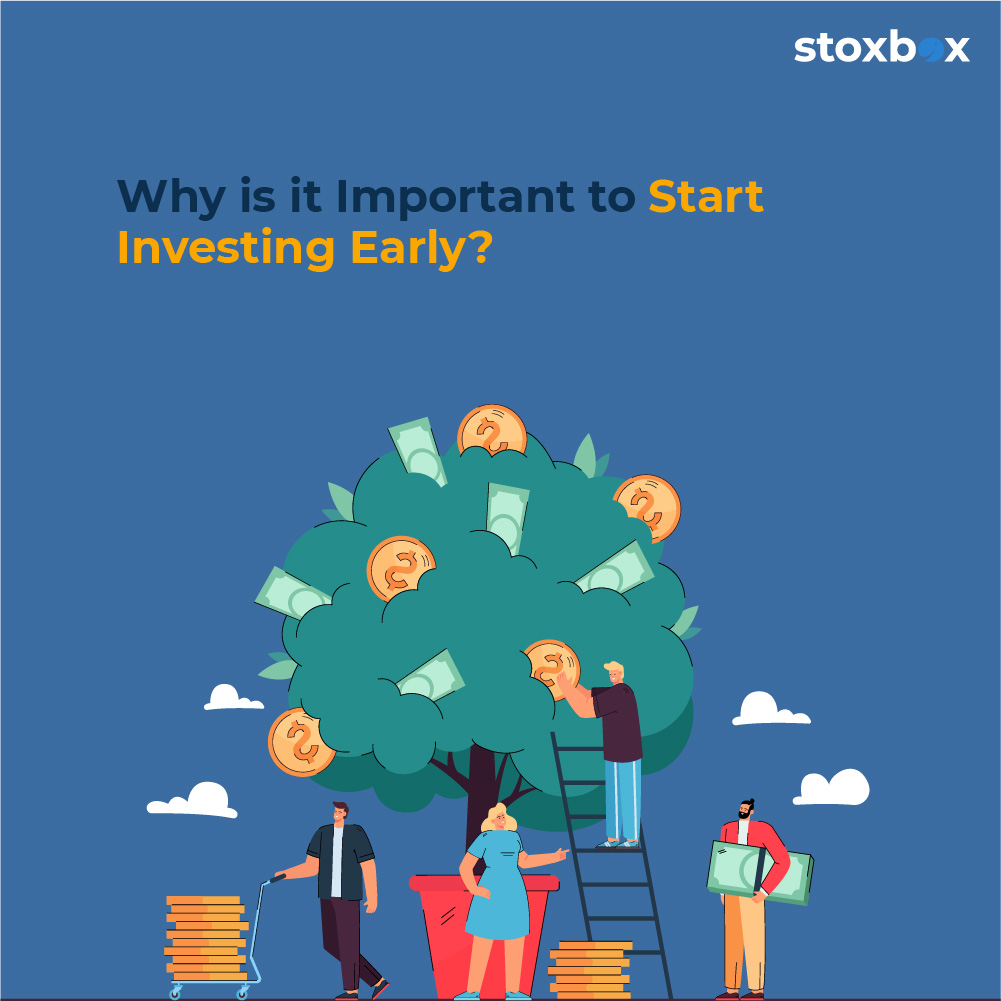
Time is one of the single significant contributors to the power of compounding. You can say that ‘when’ you start investing matters more than ‘how much’ you invest in understanding the real power of compound interest. We will understand with the help of an illustration.
Ankur and Rahul both decide to invest Rs.1000 per month. Ankur starts the investment as early as when he turns 19 years old but stops at the eighth year of investment. The total amount in his account stands at Rs.96,000. The money stays there, and the process of compounding starts. At the end of eight years, the total investment is worth Rs.1,37,231, assuming a 10% rate of return.
Now, this amount stays in the account without being touched till Ankur turns 65 years of age but continues to compound on its own.
On the other hand, Rahul starts the same investment of Rs.1000 per month, but at the age of 27. However, Rahul is consistent and keeps investing the same amount every month until he turns 65 years old. The total investment in his account stands at Rs.4,68,000 in those 39 years, which gets compounded at 10% p.a.
Who fared well in terms of investment, and who walks away with more amounts in his account? Ankur started at 19 but saved only for eight years, or Rahul, who saved for 39 years but started at the age of 27.
Ankur has Rs 1,15,22, 068, whereas Rahul has Rs 48,17, 373 in their respective accounts. Just because Rahul lost out on eight years of growth in the initial years, he walks away with almost half less than Ankur, despite investing for 31 years longer than him.
What does it mean for Individual Investors?
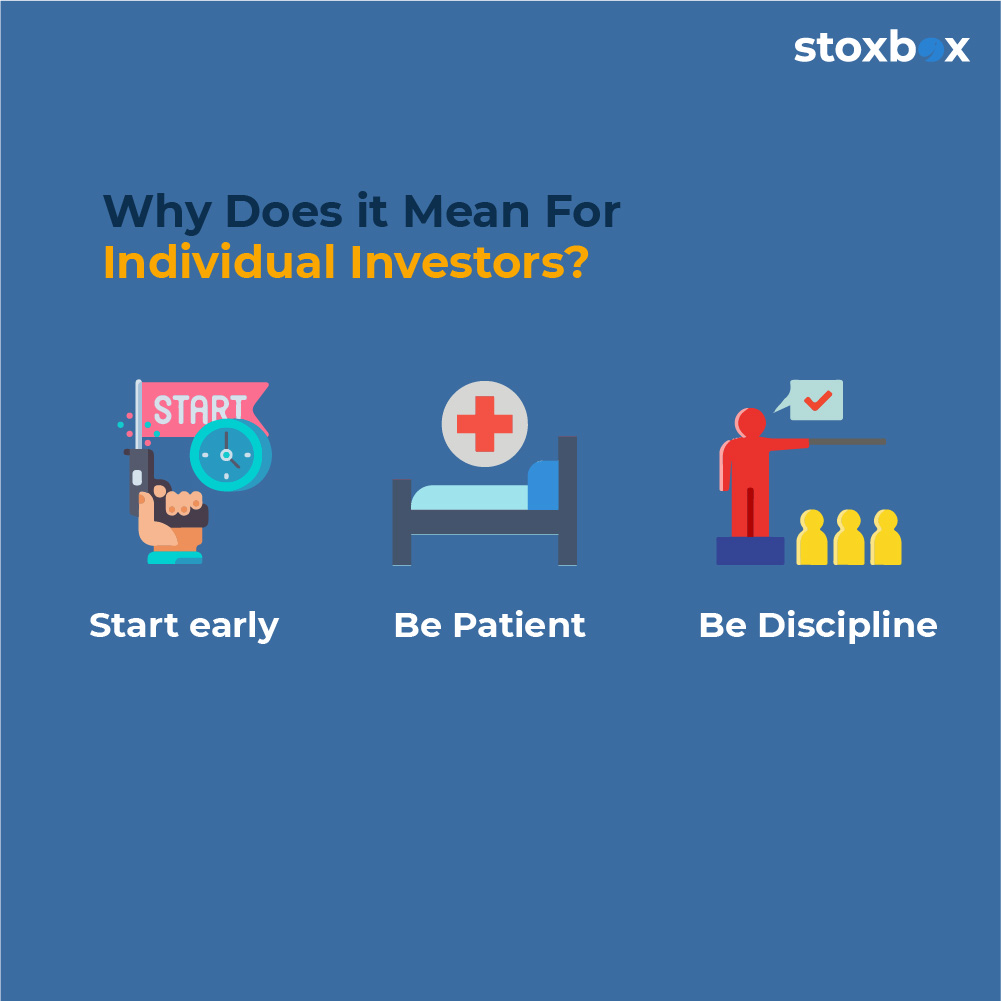
Here are certain basic tenets to follow as individual investors, which can help reap the real power of compounding:
- Start early:
The best time to start investing is ‘Now’! Ideally, a person should start investing as early as possible, maybe when you start earning. Early investment gives you leverage to create a solid base for your funds to grow and expand in the future by way of compounding. Take the help of online calculators that can tell you precisely the amount you need to invest now, which aligns with your future goals. You can also look for ready-made portfolios, to begin with!
- Stay Patient:
Compounding works in the long term. If you believe in speculative investment or booking profits, you can never realise the true power of compounding. You need to stay patient and adopt a long-term approach towards the investment.
- Be Disciplined:
Being disciplined with your investments each month will go a long way to achieve financial success. If you want to create a large corpus that meets your goals, you need to adopt a disciplined manner of investing which means meeting your SIPs regularly.
Conclusion:
The snowball effect of compound interest has hugely positive ramifications on one’s investments. To conclude, the old Chinese proverb rings true when it comes to explaining compound interest, “ The best time to plant a tree was 20 years ago, the second-best time is now.” Check out Stoxbox, which will guide you through every investment decision and offer you all kinds of profitable investment themes in various industry sectors.
You might also Like.
The Link Between Mutual Funds and Compound Interest
The Link Between Mutual Funds and Compound Interest If...

